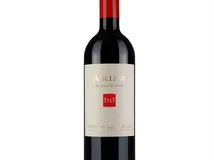
Get $5 Coupon Code (no min. spend) Sign up now
| Get $5 Coupon Code (no min. spend) Sign up now |
Get Quotations
- Promos (812)
-
Caterers
- 30 menus Best Catering for April 2025
- 650 menus Must Try
- 70 menus New Caterers
- 1,415 menus Buffet Catering
- 185 menus Tingkat/ Daily Meals
- 766 menus Mini Catering
- 493 menus Food Delivery
- 811 menus Bento/ Packed Meal
- 116 menus Family Bundle 3 to 8 Pax
- 1,448 menus Food for 5 to 10 pax
- 115 menus Cake & Dessert
- 8 menus Frozen Food New!
- 125 menus Drinks, Juices & Wines
- 14 menus Sandwich Assortments
- 19 menus Sit Down Dining
- 17 menus Confinement Meals
- 14 menus Office Pantry New!
- 1,829 menus Halal Catering
- 2,224 menus Non Halal Catering
- 1,321 menus Baby Full Month Catering
- 1,326 menus Birthday Catering
- 415 menus High Tea Catering
- 238 menus Wedding Catering
- 42 menus BBQ Catering
- 1,593 menus Breakfast Catering
- 2 menus Steamboat Catering
- 237 menus Seminar Buffet
- 12 menus Daily Meals
- 9 menus Ice Cream Catering
- Tingkat
- Restaurants
- Bento
- Vouchers
- Cakes
- 4,863 items All Cakes & Desserts
- 3,393 items Birthday Cakes
- 285 items Cake Promotions
- 1,084 items Popular Brands
- 1,368 items Delivery under $10
- 54 items New Cakes
- 53 items Gluten Free Cakes
- 2,887 items Chocolate Cakes
- 615 items Halal Cakes
- 23 items Ice Cream Cakes
- 242 items Durian Cakes
- 27 items Fruit Cakes
- 34 items Cheesecakes
- 411 items Mini Treats
- 148 items Gift Packages
- 363 items Cupcakes
- 171 items Unique Flavours
- Venues
- Corporate
- Reviews
-
Login -
Cart -
My List




_180.png)







































































 WhatsApp us
WhatsApp us